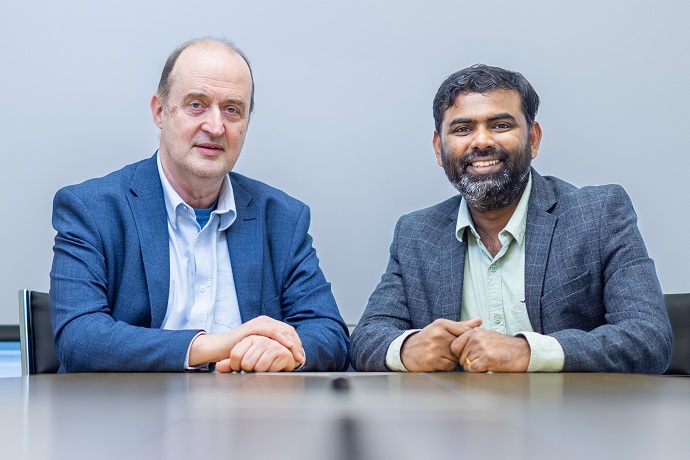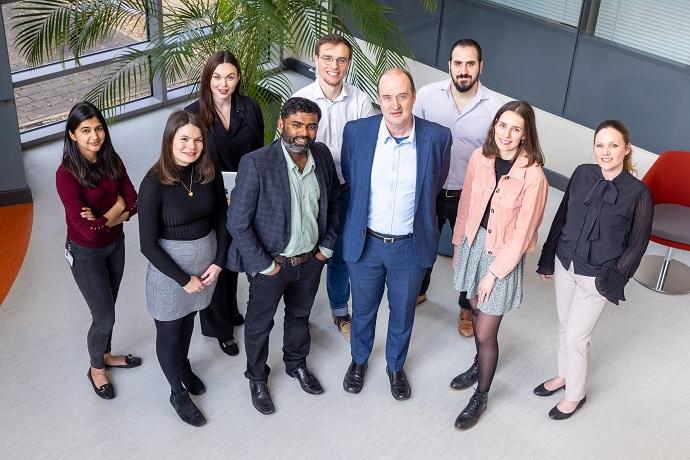Biotechnology company Maxion Therapeutics (‘Maxion’) today announced the completion of its USD $16 million (GBP £13 million) Series A financing. The funds will be used to support the development of novel biologics targeting ion channels and G-protein-coupled receptors (GPCRs) via Maxion’s proprietary, patent-protected KnotBody® platform. Ion channels and GPCRs are critical cell surface proteins involved in a wide range of previously untreatable or poorly-treated diseases, including autoimmune conditions and chronic pain. The round was led by LifeArc Ventures, including Monograph Capital and BGF as equal participants.
Maxion was established by its Chief Executive Officer (CEO), Dr John McCafferty, who co-founded CAT (acquired by AstraZeneca for £700m) and IONTAS (acquired by FairJourney Biologics). At CAT, Dr McCafferty co-invented antibody phage display, the technology used to discover the world’s best-selling drug, Humira®, and the subject of the 2018 Nobel Prize in Chemistry. Maxion’s Chief Scientific Officer (CSO) and co-founder is Dr Aneesh Karatt Vellatt (also co-founder of IONTAS), who along with Dr McCafferty invented the KnotBody platform.
While multiple small molecule drugs have been developed against ion channels, there are no approved antibody drugs addressing this target class, despite the many advantages of antibodies. Antibodies have the benefit of greater specificity, a superior safety profile, and the ability to engineer their properties using Dr McCafferty’s phage display technology.
The KnotBody platform unlocks the discovery of biologics against ion channels and GPCRs by using naturally occurring cysteine-rich miniproteins called “knottins”, which modulate ion channels and GPCRs but have poor drug-like properties. These are fused onto the surface of antibodies, and the resulting “KnotBodies” combine the functional activity of knottins with the excellent drug properties of antibodies. Maxion’s early R&D efforts have yielded KnotBodies to several therapeutically relevant targets, which will be developed as selective and long-acting first-in-class and best-in-class therapeutics.
Dr John McCafferty, CEO and co-founder of Maxion Therapeutics, said: “Until now, ion channels have been a blind spot for antibody therapeutics. Our KnotBody technology gives Maxion the opportunity to address this neglected target class and enable improved treatment of diseases driven by ion channels and GPCRs. We look forward to working with our investors to expand our exciting pipeline.”

Dr Aneesh Karatt Vellatt, CSO and co-founder of Maxion Therapeutics, said: “Maxion’s KnotBody technology combines the power of millions of years of knottin evolution with state-of-the-art antibody engineering technologies to overcome long-standing challenges in ion channel and GPCR drug discovery. We are grateful for our investors’ support as we work towards developing life-changing therapeutics for diseases with high unmet need.”
As part of the financing Dr Sohaib Mir (Senior Investment Principal at LifeArc Ventures), Dr Tim Funnell (Partner at Monograph Capital), and Lucy Edwardes Jones (Investor at BGF) will join Maxion’s Board of Directors alongside Dr McCafferty, Dr Karatt Vellatt as well as Dr Tom Weaver who is a Non-executive Director.
Dr Sohaib Mir, Senior Investment Principal, LifeArc Ventures, commented: “Maxion’s founders are seeking to build a category-defining business, and LifeArc Ventures is delighted to collaborate with them as they start to build a promising pre-clinical pipeline. Led by a highly experienced and scientifically world-renowned team, Maxion has the potential to create novel therapies for the significant proportion of patients who fail to respond to current treatments in a wide range of diseases.”
Dr Tom Weaver, Non-executive Director, Maxion Therapeutics, said: “The current investment is a strong indicator of the potential of Maxion’s cutting-edge KnotBody technology to successfully target ion channels and GPCRs, especially when paired with a stellar team of pioneering experts in antibody development. I look forward to supporting the company as it moves from strength to strength with its high-calibre pipeline of therapeutic candidates, which could one day deliver a significant, positive impact to patients and their families.



